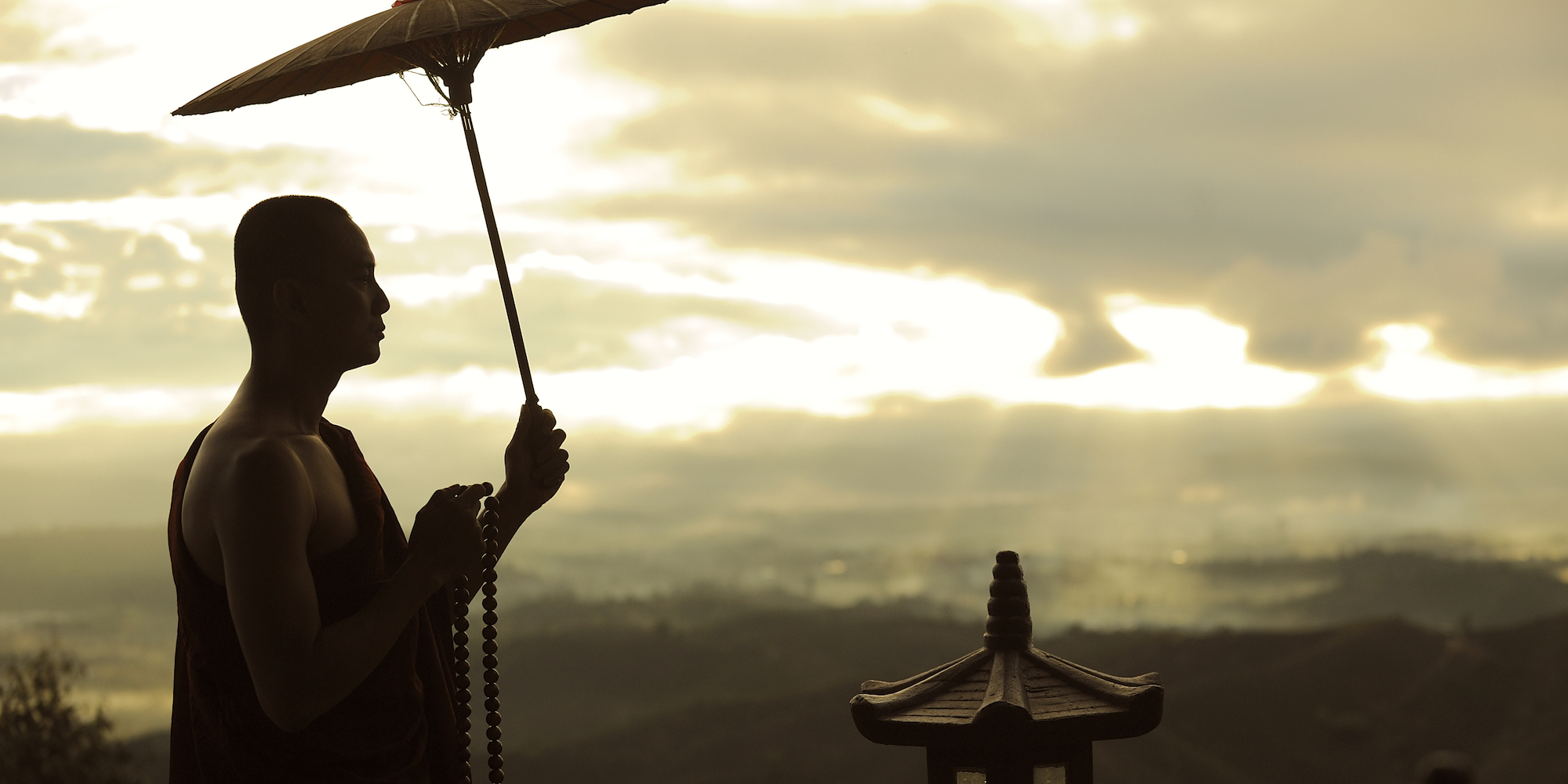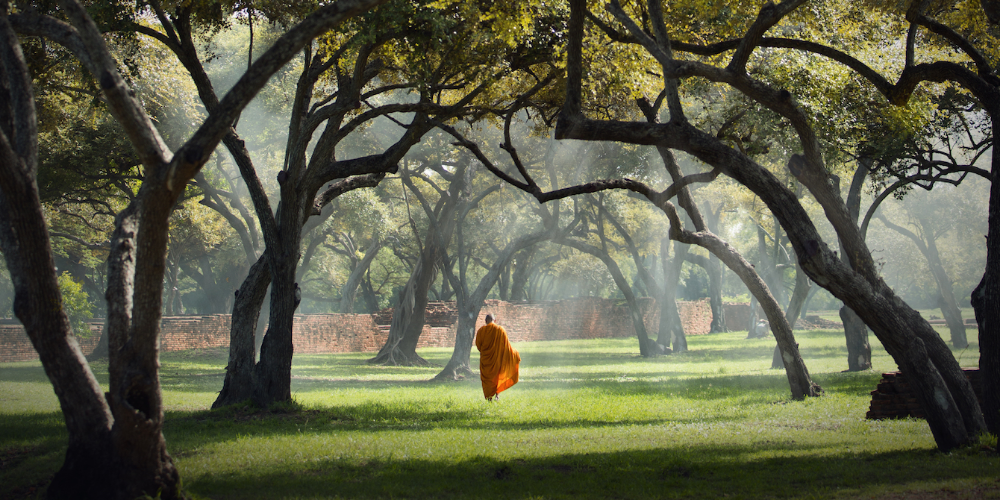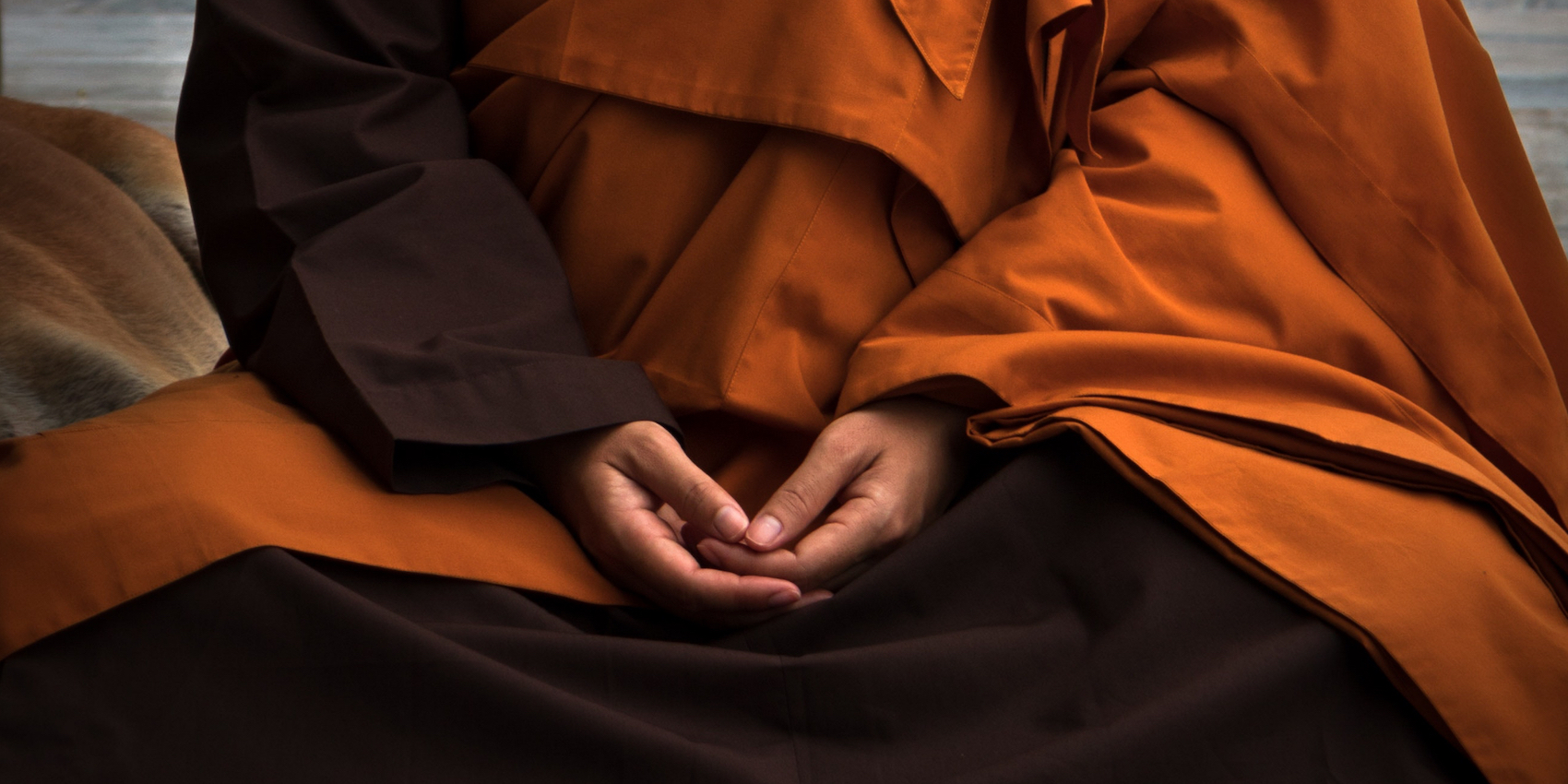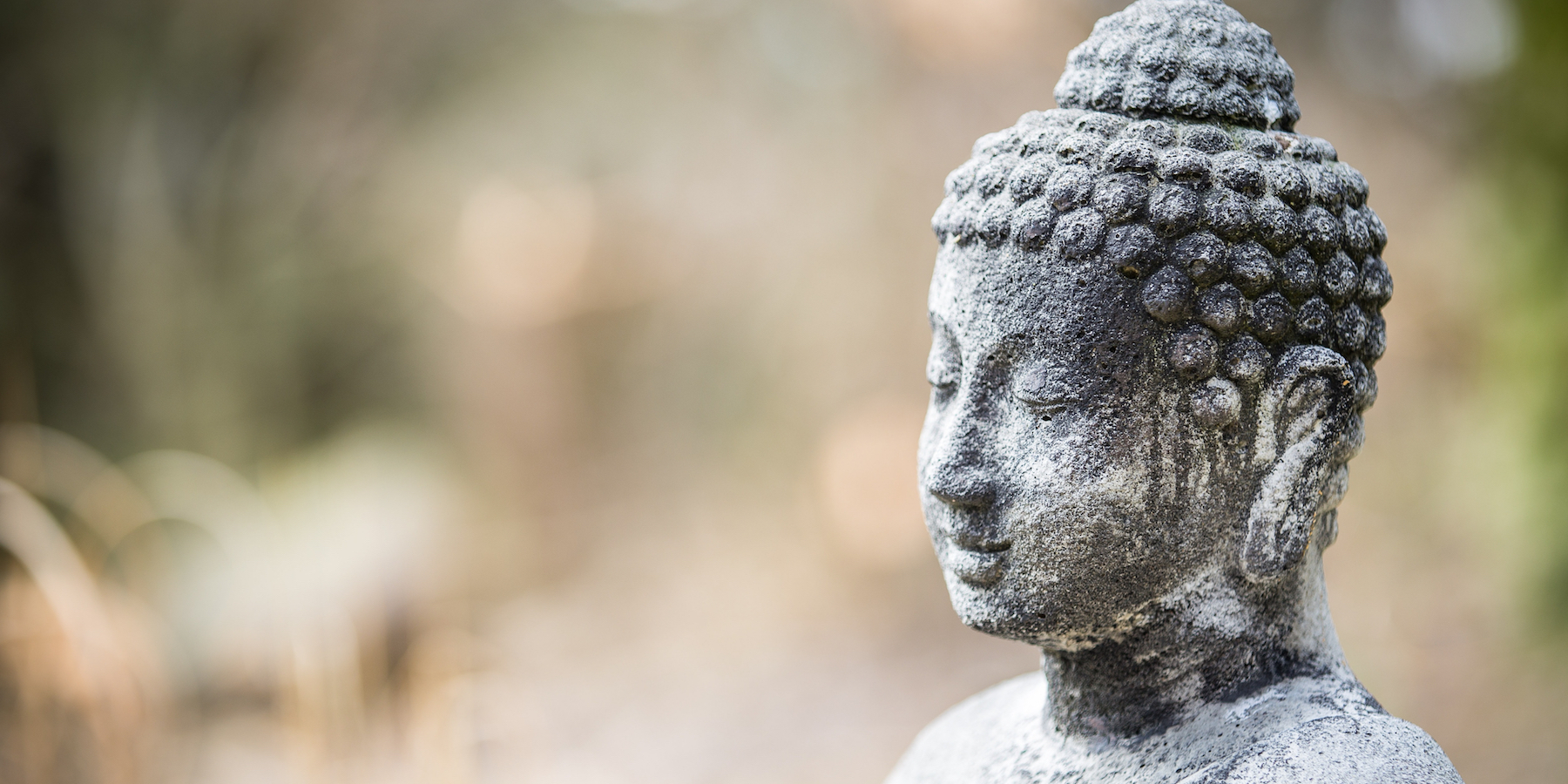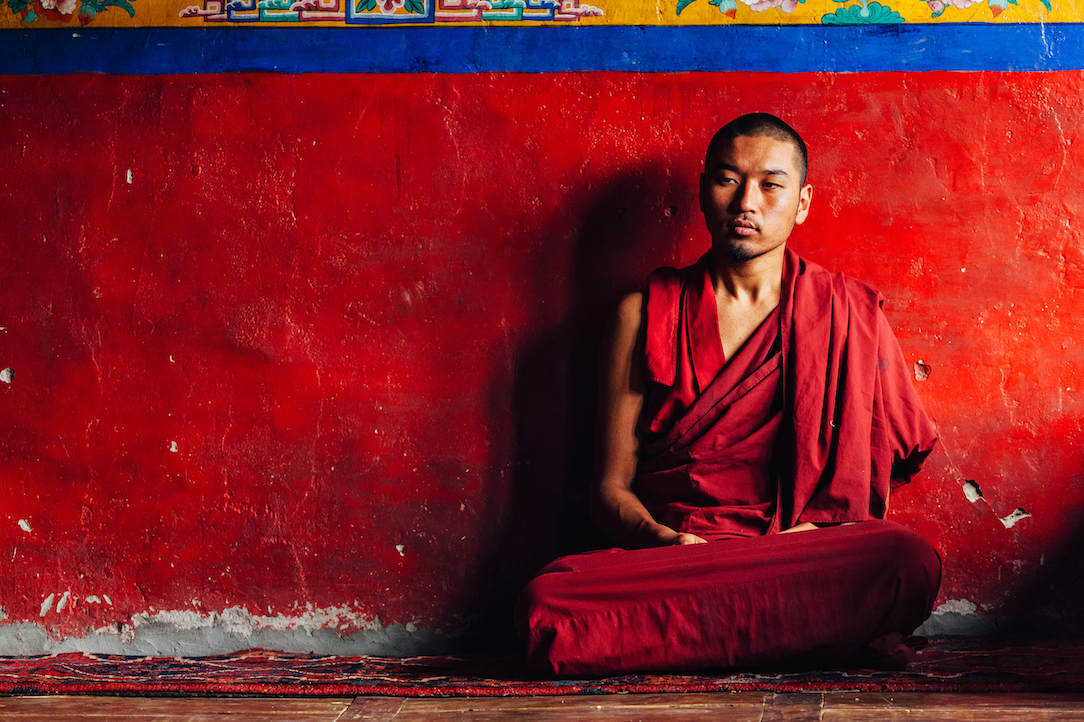A good way to train ourselves in self-restraint is to have a day of observance. This is when you make a promise to yourself to observe the eight Buddhist precepts.
Observing The Buddhist Precepts On Any Day
You can observe these precepts for one day, a week, a month, a year or even for the rest of your life. However, most people would do them for a day because they have family or work commitments. It is possible to do them for a longer period if you attend an organized retreat. A lot of people will wait for a certain day or date to have a day of observance, but I believe it is not necessary to wait for a special day, such as a new or full moon day.
A good day to choose is when you are not working, so you can concentrate on doing practice, reading books or listening to teachings. I would suggest you try to do a day of observance once a week, but at the very least once a month.
8 Buddhist Precepts
These precepts are the five precepts, which most Buddhists are aware of, with an extra three precepts added.
The Buddhist precepts are:
- Refrain from killing
- Refrain from stealing
- Refrain from wrong speech
- Refrain from sexual misconduct
- Refrain from intoxicants and illegal drugs
- Refrain from eating at the wrong time
- Refrain from any type of entertainment and from beautifying yourself
- Refrain from sleeping on a luxurious bed
Read more: We asked Buddhist monk Ajahn Achalo and Buddhist teacher Dr. Miles Neale what it means to be Buddhist. Read their inspiring and personal answers.
Practicing Self-Restraint
On the day of observance, you should rise at dawn and commit to adhere to the Buddhist precepts until dawn the next day. You do not have to make the promise to a god or a teacher or anyone else; just make it to yourself because it is you who is going to benefit, and it is also you who will be cheated if you do not carry out the observance.
How To Follow The 8 Buddhist Buddhist Precepts
Precept one is refrain from killing, and so it is good not to eat any meat or dairy on this day and to remain conscious of not killing any animals or insects.
Precept two is refrain from stealing, so do not take what has not been given.
Precept three is refrain from wrong speech and if you come into contact with others on this day, be sure you think before you speak. Do not say anything until you have checked to see if it is true, helpful and kind. I believe it is much better to take a vow of silence on this day. It has two benefits: you do not have to worry about wrong speech and, most important, you remain focused as there is just you and your thoughts and that is a very powerful combination.
Precept four is refrain from sexual misconduct, so do not engage in any sexual activities on this day. That means no sex between dawn one day and dawn the next day. This is not saying that sex is a bad thing, only that it is a distraction and something we get attached to, so it is better to refrain from it for one day.
Precept five is refrain from intoxicants and illegal drugs. You should only drink water or fruit juice in the morning and not tea, coffee, energy drinks or alcohol. Of course, medicinal drugs are permitted.
Karma Yeshe Rabgye is a popular teacher on Insight Timer. Before you read on you might want to listen to these staff-picked guided meditations by him:
- Relaxing Your Mind Karma Yeshe Rabgye 8:30
- Experience Stillness Karma Yeshe Rabgye 16:41
- Mindful Body Scan Karma Yeshe Rabgye 10:55
- Befriending Yourself Karma Yeshe Rabgye 12:01
- Positive Breathing Awareness Karma Yeshe Rabgye 10:23
- Breathing Awareness With Anchor Words Karma Yeshe Rabgye 10:13
Precept six concerns not eating at the wrong time, and so we should not eat and drink after noon on the day of observance. It is advisable to eat and drink at around eleven thirty in the morning and then not to eat or drink anything after that until dawn the next day. I would suggest that if you live in a hot country, you should take a sip of water periodically throughout the day but refrain from drinking anything else.
This is not a form of punishment or penance; it is to help you remain focused on your practice, especially meditation practice. When we have eaten a meal, it makes us feel heavy and sluggish, and both of these are not helpful for meditation as they make you feel sleepy. I would advise you not to eat twice as much at eleven thirty, hoping it will see you through till dawn, as this does not work—I know because I tried it. It will only make you feel bloated and uncomfortable.
Remember, if you lose your self-restraint and take a bite to eat or have a drink between noon and dawn, don’t be hard on yourself. Just retake the precept and focus your attention back on your practice.
Read more: In another article, Karma Yeshe Rabgye reflects on the five hindrances in meditation practice and on the spiritual path, and how to overcome them.
Precept seven is divided into two parts; refraining from entertainment and beautifying oneself.
- The first part is aimed at keeping your mind, body and speech away from all kinds of entertainment. Not, of course, that they are “sinful,” but that they disturb our mind and excite the senses. This covers TV, radio, cinema, sporting events, YouTube, social media and even the Internet. I would further suggest you turn off your phone from dawn until dawn the next day— I know some of you will be horrified by that thought, but don’t worry, the world won’t end.
- The second part covers not wearing makeup, jewellery and perfumes. This is to stop any form of vanity and conceitedness from arising. It also takes you back to basics. It doesn’t matter what your hair looks like or if your clothes are nicely ironed. What matters is that you stay focused on your practice and train yourself in self-restraint.
Read more: Scott Tusa reflects on the teachings of the Four Seals of Buddhism as the foundational principles of the Buddhist path.
Precept eight covers not sleeping on a luxurious bed. Throughout the day you have cut out other luxuries, so the luxury of a large, soft bed should also be dispensed with. You could put a mattress on the floor or sleep on your own in the spare room. This is not for punishment, but to help build your self-restraint.
I have heard of people going to bed at six in the evening because they were hungry and couldn’t watch the TV, so they thought they would sleep and when they wake up, they can eat and get back to their normal way of life. This is missing the point. Use your free time to study, reflect and do your practice.
Building Mental & Bodily Discipline
So, these are the eight Buddhist precepts to follow during your day of observance. They are meant to build your mental and bodily discipline and are not a penance. If you fall short on any of these precepts during the day, don’t beat yourself up; just retake the precept and move on.
Setting up a day of observance takes planning. You have to be sure that your family and friends know what you are doing so they don’t disturb you. The first time may be a bit hit-and-miss, but don’t give up. The rewards are worth it, and in the end, it will help build your self-restraint and make your life much simpler.
Read more: Buddhist teacher Scott Tusa reflects on the interconnecting and compassion arising effects of an open question and how it can be inquired.

